Hive Open Mic #224 - Summertime (Eng-Esp)
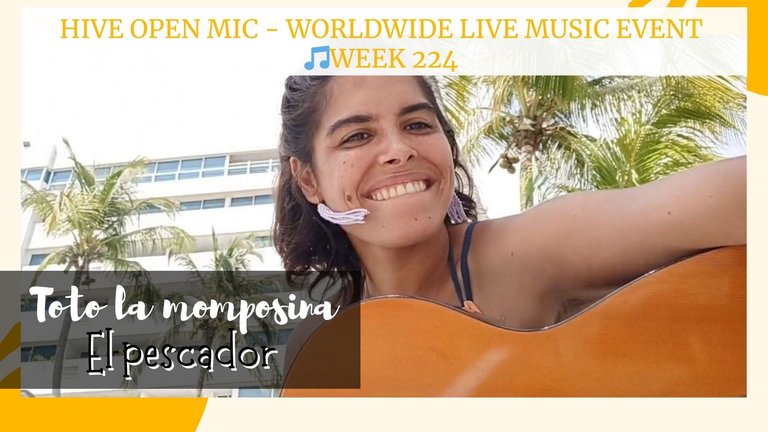

De un verano a otro
“De la que te salvaste,” me dicen mis amigos desde Uruguay, mientras ellos atraviesan el invierno más frío que han tenido en mucho tiempo.
Una de las cosas lindas de viajar es poder mirar con ojos de aventura los nuevos horizontes, además de que te da una perspectiva de cambio, tanto interna como externa. Cuando llegué a Montevideo, estaba comenzando la temporada de otoño: algo de frío, algo de lluvia y algo de sol, lo necesario para disfrutar de la ciudad y aclimatar un cuerpo caribeño a los vientos sureños. Uruguay se pinta con una paleta de colores hermosísimos: amarillo, naranja, marrón. Montevideo guarda un estilo de antaño, con edificios y árboles en contraste, vistas de postal. Al llegar, no me imaginaba lo frío que sería, aunque todo el mundo decía que en verano sería más cálido (risas sarcásticas). Un clima muy cambiante, además de fuertes vientos y una humedad que se levanta de la tierra al cielo.
Con dos inviernos, no tengo suficiente experiencia para hacer un reporte muy detallado de cómo es siempre. Sin embargo, aunque paseé por algunas playas, estando allá me gustaba más disfrutar del paisaje que de las actividades normales que me gustan en la playa.
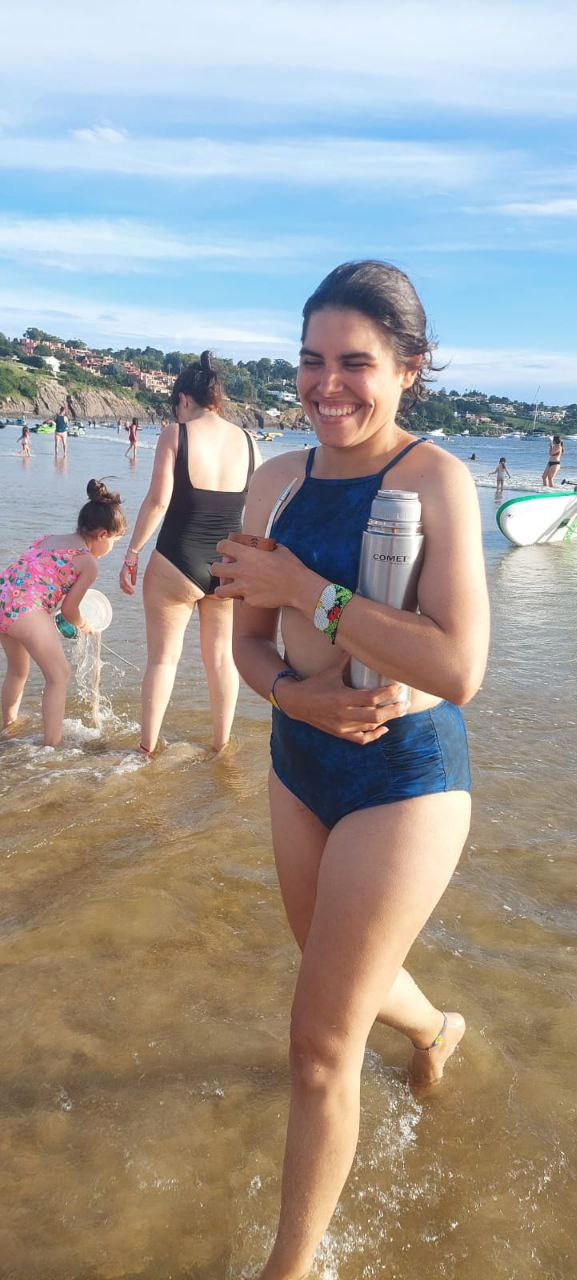
Decidida a descansar del frío, dije: "Será mi tiempo de vacaciones playeras," y Cumaná, mi ciudad de nacimiento, tiene mis playas favoritas. Es bastante sencilla, pero la mayoría de los días, el calor frente a casa te invita a sumergir la cabeza bajo el agua y soltarte a flotar.
Ya tengo dos meses despertándome con 28grados, escucho desde temprano las aves y los seres madrugadores, entre ellos los pescadores que tienen su jornada tempranera salen a echar redes al anochecer y recogen redes aun con la luna pintada en el cielo para evitar que el calor dañe la pesca.
Los pelicanos acompañan esta jornada, sobre todo en la mañana cuando ya pescaron. Así vigilan si algún pez se escapa XD.
Esta semana sintiendo que traer pensé en una canción que había aprendido hace tiempo, la versión mas poderosa que he escuchado es de "Toto la Momposina", quien con la compañía del tambor te lleva a la sabrosura de la playa cubana. Y en este momento es el soundtrack que llevo internamente mientras camino al amanecer y al atardecer por la playita y veo a los locales dialogando con la naturaleza.
From one summer to the next
“You've been saved,” my friends tell me from Uruguay, as they go through the coldest winter they've had in a long time.
One of the nice things about traveling is being able to look at new horizons with adventurous eyes, plus it gives you a perspective of change, both internally and externally. When I arrived in Montevideo, the autumn season was beginning: some cold, some rain and some sun, the necessary to enjoy the city and acclimatize a Caribbean body to the southern winds. Uruguay is painted with a palette of beautiful colors: yellow, orange, brown. Montevideo keeps a style of yesteryear, with contrasting buildings and trees, postcard views. When I arrived, I had no idea how cold it would be, although everyone said it would be warmer in summer (sarcastic laughter). Very changeable weather, plus strong winds and humidity that rises from the earth to the sky.
With two winters, I don't have enough experience to do a very detailed report on what it's always like. However, although I did walk a few beaches, being there I was more into enjoying the scenery than the normal activities I enjoy at the beach.
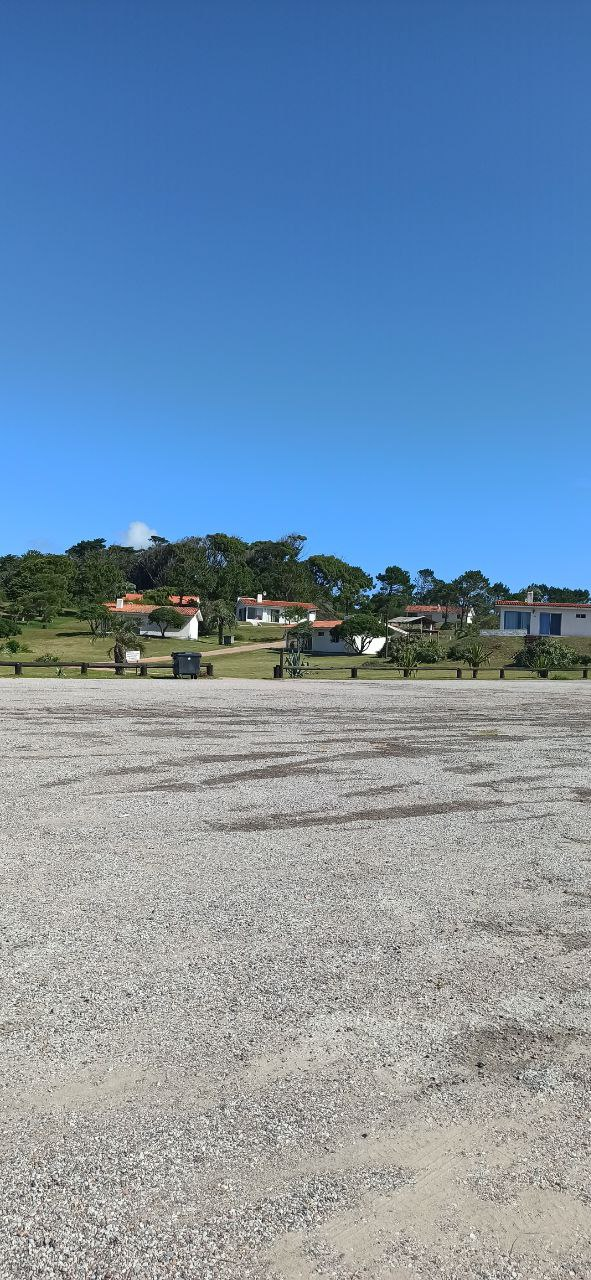
Determined to take a break from the cold, I said, “It will be my beach vacation time,” and Cumaná, my birth city, has my favorite beaches. It's pretty simple, but most days, the warmth in front of the house invites you to dip your head under the water and float away.
I have been waking up for two months now with 28 degrees Celsius, I listen early to the birds and the early risers, among them the fishermen who have their early day out to cast nets at dusk and collect nets even with the moon painted in the sky to prevent the heat from damaging the fishing.
The pelicans accompany this day, especially in the morning when they have already fished. This way they watch if any fish escapes XD.
This week feeling that bringing I thought of a song I had learned some time ago, the most powerful version I have heard is by “Toto la Momposina”, who with the company of the drum takes you to the tastiness of the Cuban beach. And at this moment it is the soundtrack that I carry internally while I walk at dawn and dusk along the beach and watch the locals talking with nature.
Letra y Acordes / Lyrics and Chords
Va subiendo la corriente
Con chinchorro y atarraya
La canoa de bahareque
Para llegar a la playa
La luna espera sonriente
con su mágico esplendor
la llegada del valiente
el valiente pescador
El pescador (habla con la luna)
El pescador (habla con la playa)
El pescador (no tiene fortuna)
Sólo su atarraya
El pescador (habla con la luna)
El pescador (habla con la playa)
El pescador (no tiene fortuna)
Sólo su atarraya
Regresan los pescadores
Con su carga pa vender
Al puerto de sus amores
Donde tienen su querer (ay, ay, ay, ay)
Esta cumbia que se llama
el alegre pescador
la compuse una mañana
una mañana de sol
El pescador (habla con la luna)
El pescador (habla con la playa)
El pescador (no tiene fortuna)
Sólo su atarraya
Acordes/Chords; Am-C-E
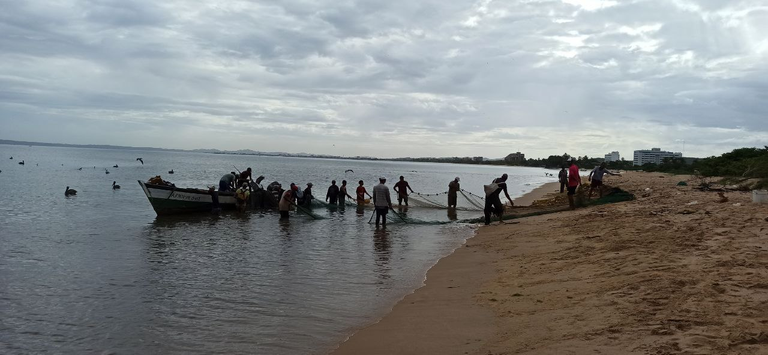
El pescador.
Ese señor que es hijo de la mar
ese señor que es rico por herencia
de piel tostada y de sangre caliente.
Ese señor si que tiene guaramos
se encomienda todas las noches
y al mar lleva sus penas
se va con lamparita y anzuelo
se va con carnada y rezo
de vuelta trae frutos
de vuelta cuando baja la marea.
de vuelta se viene cansao
y lo ultimo que hace es arreglar el pescao
la jornada termina en
arepa con lomo frito
y un chinchorro ahí que quede bajito.
Agradezco a mis abuelos pescadores, agradezco a mis abuelas guardianas de la mar, agradezco a mi padre por su nacimiento y a mi madre por traerme a cumana
The fisherman.
That man who is a son of the sea
That gentleman who is rich by inheritance
with toasted skin and warm blood.
That gentleman who has strong
he prays every night
and takes his sorrows to the sea
he goes with a small lamp and a hook
he goes with bait and prayer
he brings back fruits
back when the tide goes out.
back he comes back tired
and the last thing he does is to fix the fish.
the day ends in
arepa with fried pork loin
and a “chinchorro” there that is low.
I thank my fishermen grandfathers, I thank my grandmothers guardians of the sea, I thank my father for his birth and my mother for bringing me to Cumana.
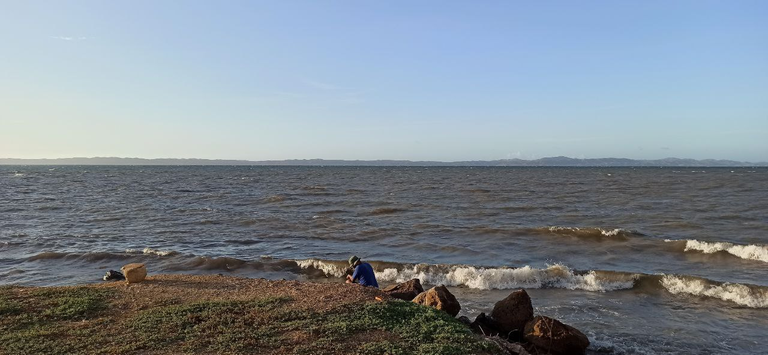
Esto ha sido todo por hoy, desde mi corazón espero estén teniendo un hermoso presente. Nos vemos en una pronta ocasión. Adiwa!
This has been all for today, from my heart I hope you are having a beautiful present. See you soon. Adiwa!
